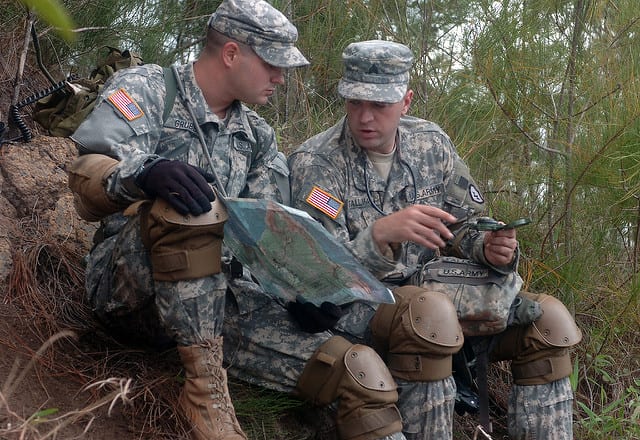Transition can leave us disoriented, feeling like we are navigating life with a broken compass
Now while Peter was inwardly perplexed as to what the vision that he had seen might mean, behold the men who were sent by Cornelius, having made inquiry for Simon’s house, stood at the gate and called out to ask whether Simon who was called Peter was lodging there. And while Peter was pondering the vision, the Spirit said to him, “Behold, three men are looking for you. Rise and go down and accompany them without hesitation, for I have sent them.” (Acts 10:17–20)
An Internal Compass
Transition can leave us disoriented, feeling like we are navigating life with a broken compass. As someone with a poor sense of direction, I need a fully operational compass. Military life and beyond presented me with numerous opportunities to travel. Even with my poor sense of direction, I have navigated trains, planes, autobahns, and subways around the world, but I sometimes get lost when attempting to navigate through a transition.
When the vision ended, Peter tried to figure out what it meant for him. God had smashed Peter’s internal compass of religious rituals and the rules that had directed his life and he was perplexed. Like a trooper dropped into unfamiliar territory in the middle of night with no landmarks in sight only to discover his compass is broken, Peter was disoriented.
 Scripture describes his emotion following the vision as “perplexed” as he pondered the event. A good word picture for ponder is that his mind was going this way and that without being able to come to any real understanding or conclusion.1 Transition will do that to a person!
Scripture describes his emotion following the vision as “perplexed” as he pondered the event. A good word picture for ponder is that his mind was going this way and that without being able to come to any real understanding or conclusion.1 Transition will do that to a person!
Have you ever used a compass to navigate? Compass navigation is more difficult than it sounds. You have to know exactly where you are when you start and make sure you have the compass pointed in the right direction. Then you must make sure you do not stop short of your destination, or navigate on the correct course but go too far past your destination point. A compass is a good tool, but tough to use with proficiency. There is a better way: GPS. Guided by a satellite in the sky, a GPS knows where you are, where you need to go, and best of all—how to get there. All you have to do is stay connected.
Being Prepared for Change
To Peter’s credit, the fact that he saw this vision while he was on the rooftop, in prayer, indicates that he is in the condition to receive the message of God.2 More important than being able to see or predict every phase of a transition is being sure our connection with God is strong. The men at Peter’s door reiterated the story of the angel’s visit to Cornelius, reinforcing with Peter that the vision and the men were both part of a script God was writing. Peter did not know where he was going or why, but he was willing to be led by God.3
Peter did not know where he was going or why, but he was willing to be led by God
Transition is the process that gets us from one place to another in the context of what could be the new normal. We do not just jump from a clean start to the ordered end. What happens in the middle of the process can be messy, but the mess is necessary in order to let go of prejudices, methods, and attitudes—the emotional junk that keeps us from moving forward.
As a military wife I learned to prepare for change, but it took me a while to realize I was not always prepared for transition. Checking boxes on lists for a PCS, deployment, or reintegration can indicate that things in my life changed. I cannot make a linear plan on how I will deal with the emotional struggles I experience in between change and acceptance.
Respond
I have learned, however, not to panic when my old tried-and-true compass gets smashed. I just turn on my prayer-powered GPS, focus on where I am, and take the next turn. Sister, God knows how to lead us through transition.
The danger in this stage is to “grow numb by avoidance and denial.”4 What have you done to get past avoidance and denial during transition? How has prayer prepared you for transition?
Prayer for the Journey
Lord, when I feel disoriented I’m reminded of my dependence on you. Thank you for the assurance that your Spirit will help me in my weakness. When I do not know what to pray for your Spirit intercedes for me with groanings too deep for words. Amen. (See Romans 8:26.)
1 Arrington, 180.
2 Ibid., 178.
3 William H. Willimon, Interpretation, A Bible Commentary for Teaching and Preaching: Acts (Louisville, KY: Westminster John Knox Press, 1988), 96.
4 Walter Brueggeman, The Message of the Psalms (Minneapolis, MN: Augsburg Publishing House, 1984), 22.




